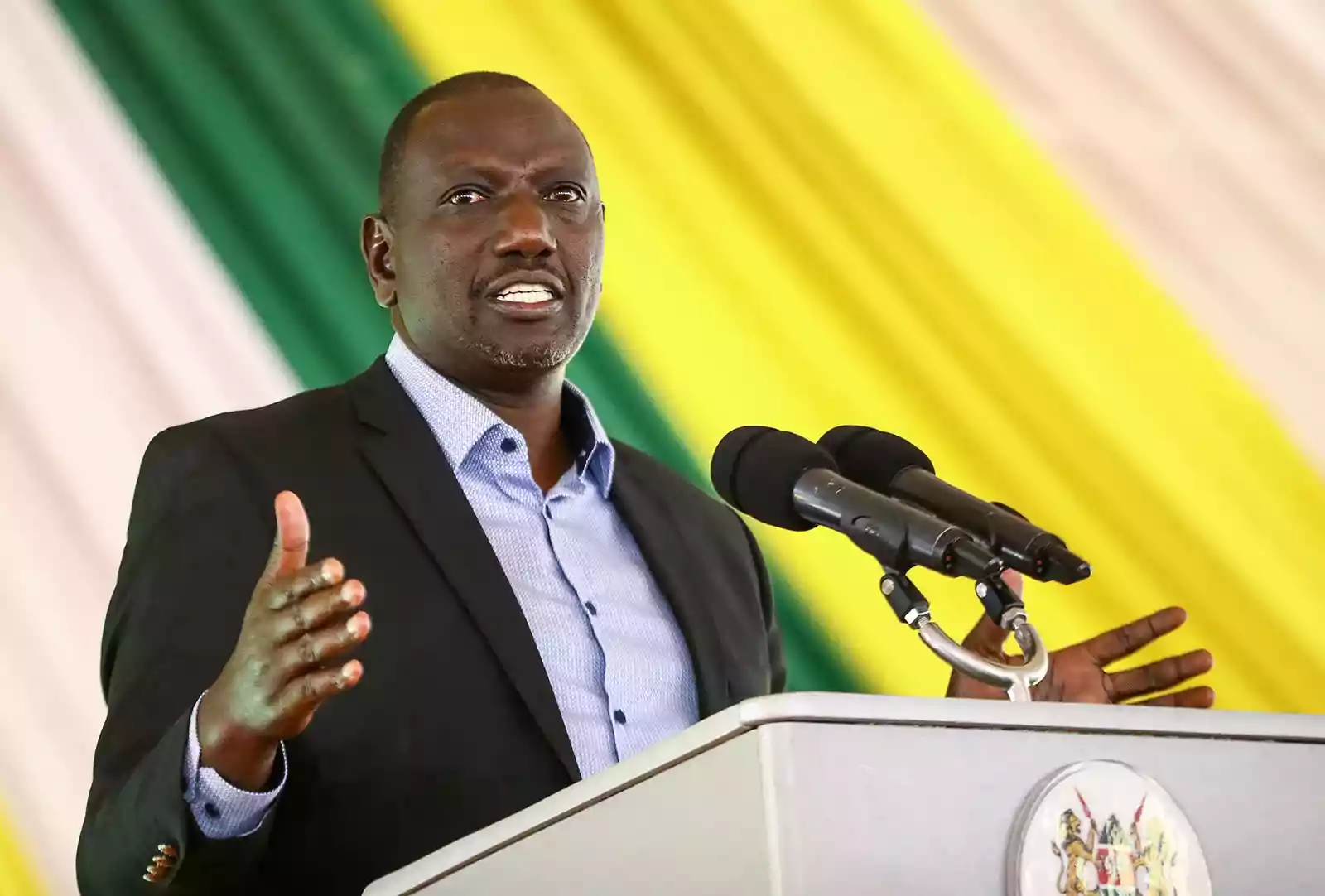Kenyan President Dr William Ruto has praised Zimbabweans for their resilience in the face of multiple challenges, saying their determination is an example to other countries.
Officiating at the 64th edition of the Zimbabwe International Trade Fair (ZITF) in Bulawayo on Saturday, Ruto said Zimbabweans were not to blame for their country’s problems and that their refusal to lament in despair was encouraging.
The Kenyan leader, who arrived with his wife, Rachel, in Bulawayo on Friday, started his speech by appreciating with ‘deep’ gratitude the ‘warm’ welcome he and his delegation received in Zimbabwe, describing the country as a “beautiful, abundant land of great promise.”
“One thing that has been difficult to ignore from the moment we stepped on Zimbabwe’s soil is the unmistakable energy of a country going places, a people facing forward and a nation entering a new chapter in its development history,” Ruto said.
“Upon observation and reflection. I have a good idea about the source of this infectious air of optimism and expectation, which fills up every space in this great nation.”
The Kenyan president acknowledged that Zimbabwe experienced significant hardships, but seeing the Zimbabwean people rise above them was inspiring.
“We all know that Zimbabwe has waged its share of struggles, faced its share of challenges and undergone a great deal of setbacks and pressures,” Ruto said.
“It has been inspiring to witness the resilience and fortitude of the Zimbabwean nation and the people who, though not the authors of their country’s tribulations, refused to be victims of it and did not give up, slow down or lament in despair.”
He added that instead Zimbabweans have endured and forged on with a “confident, prayed patience of a people who have prevailed against formidable adversaries and won daunting battles time and time again.”
Ruto claimed that it was “evident that this indomitable spirit (of Zimbabweans) has received a shot in the arm” citing the leadership of Zimbabwean president, Emmerson Mnangagwa.
“This explains the positive changes that are taking place in many parts of the country and demonstrates Zimbabwe’s readiness to transform its abundant potential into opportunities for all sectors of its economy to make their contribution towards poverty reduction, employment creation, wealth generation and reduction of inequality, thereby ushering in economic development and inclusive prosperity,” he said.
The Kenyan leader said the government’s policy of agricultural revitalisation, where it invests in the provision of access to inputs, technology and markets, together with a strategy of supporting farmers to enhance agricultural productivity and achieve food security, “the seeds of transformation have been sown in Zimbabwe’s farmlands.”
“It’s first fruits will be a major uplift in livelihoods across the country, leading to rural wealth and employment creation,” he said, adding that afterwards the maturing of various agroindustrial value chains will attract investment into expansion in manufacturing and growth in exports, creating even more jobs and more wealth for the people of Zimbabwe.
“The restoration of agriculture as the cornerstone of economic growth and of Zimbabwe as a famous bread basket is feasible and already in hand.”
Ruto said another “visible” effect of Zimbabwe’s commitment to embark on a new, ambitious journey of development is infrastructural development, saying it has enhanced Zimbabwe’s transport, energy and ICT sectors, bolstering domestic and regional connectivity, increasing productivity, promoting trade and attracting investment.
“Just last week your Minister for ICT (Tatenda Mavetera) was in Kenya and I had a robust conversation with her and many others for my region on how we should connect our countries,” said the Kenyan president.
“This connectivity, underscored by the two Trans-African highways, which traverse Cape Town to Cairo and Beira to Lobito highways in conjunction with the strategic pursuit of regional integration through the membership of such bodies as the Southern African Development Community (SADC) and the common markets for East and Southern Africa COMESA as well as the African Continental Free Trade Area (AFCTA) demonstrates that Zimbabwe is determined to catalyse domestic, regional and pan African trade.”
The Kenyan leader said in all these aspects, the country was “in good company because Kenya stands ready shoulder to shoulder with Zimbabwe as we march on together.”

